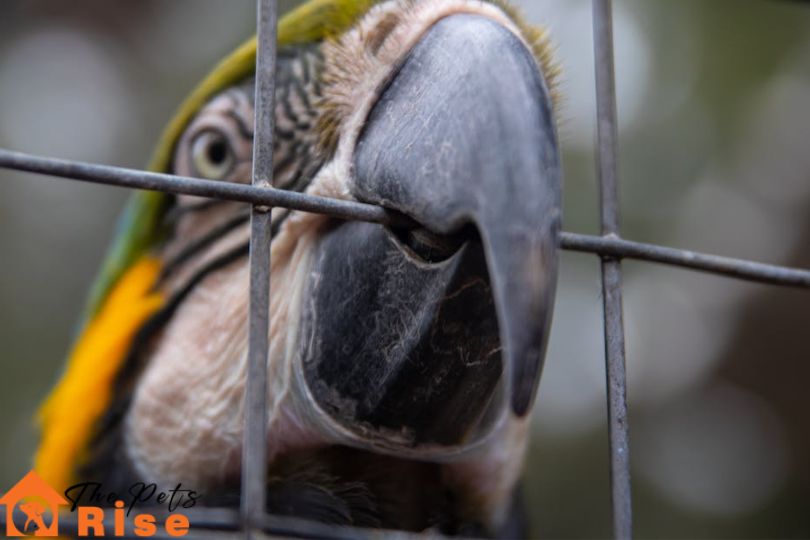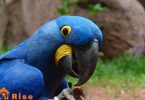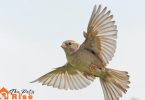Do you know the signs of stress in birds? Yes, your cute feathery fellas can also suffer from stress as well. While your bird can also feel sad and that sadness can be a sign of stress as well. We all love our feathered friends, don’t we? Their colorful appearance, cheerful chirps, and quirky behaviors can light up our lives. But just like us, birds can experience stress and sadness too. Yes, you heard it right! So, let’s dive into the world of our avian companions and learn how to identify signs of stress in birds and, more importantly, how to help them chill out.
Feathered Friends or Stressed Buddies?
First things first, let’s talk about pet bird stress. Birds might not have deadlines to meet or bills to pay, but they have their own set of worries. These could include changes in their environment, pet bird health issues, or even a bully bird in the neighborhood. So, what are the obvious signs of stress in birds?
-
The Silent Treatment
Imagine an otherwise vocal canary suddenly becoming silent; that would be like someone suddenly going radio silent – not an encouraging sign! If your often vocal bird becomes quiet and tight-lipped, take notice; silence might not always be golden in this instance.
-
Molting Mayhem
The process of shedding feathers or molting is an inherent part of bird behavior. However, excessive or widespread feather loss could indicate stress. Similar to when we lose hair during difficult times. Molting shouldn’t be seen as something unpleasant but as something to take seriously as an indication.
-
The Fluffy Puff
Birds may ruffle up their feathers for warmth, but when this behavior becomes excessive it could indicate stress-induced anxiety or sadness in them. If your bird often looks like a feathered snowball then that might be why.
-
Fidgety Feathers
Imagine this: your bird keeps pacing back and forth or fidgeting on its perch, acting out jitterbug dance competition-esque moves – showing signs of stress rather than dancing competition practice!
-
Feather Plucking – The Stress Habit
Imagine your bird has taken up a new hobby: feather plucking. It’s like us compulsively biting our nails. If your bird starts pulling out its own feathers, it’s time to intervene and help your stressed buddy break this unhealthy habit.
-
An Appetite for Distress
Bird’s Diet is usually simple and ample. However, stress may make them lose interest in eating altogether or nibble less frequently – both indicators that something could be wrong with your pet bird. If its nibbling behavior suddenly decreases or it refuses to feed at all – that could be an indicator that something else needs attention.
-
Stressed Out Body Language
Keep an eye on your bird’s body language. If it appears stressed out and sits hunched with feathers ruffled and eyes half closed, that doesn’t signal cuteness; these could be signs that indicate its distress.
-
Agitated Aggression
Stressed birds may become more aggressive. If your typically peaceful pet turns violent overnight, take steps immediately.
-
Droppings Drama
No one likes drama when it comes to droppings – especially if they change color or consistency suddenly and unexpectedly, which may indicate potential health concerns related to stress-induced health problems for your bird.
Now that we understand how to identify stress in birds, let’s dive deeper and discuss ways you can assist your feathered friend in discovering his or her inner Zen master.
How to Calm a Stressed Bird?
Knowing how to calm a stressed bird will enhance the bonding between you and your pet birds.
-
Create a Safe Haven
Imagine being stressed, and someone offering you a cozy, tranquil room to rest and recover in. Birds appreciate such kindness. Create an area for them where there will be minimal noise or disturbances so your bird may relax freely.
-
Routine, Routine, Routine
Birds love routines. Establish a regular feeding and playtime schedule so that your bird knows what to expect each day. It’s like having a daily to-do list for your bird buddy.
-
Feathered Friends Unite
If your bird is sociable, consider getting it a birdie buddy. Just like us, birds need friends to chat with, even if it’s just a few chirps.
-
Enrichment Activities
Stimulate your bird’s mind with toys, puzzles, and activities. A busy bird is a happy bird, much like a busy bee is a happy bee.
-
Quality Nutrition
Give your bird a balanced diet. A well-fed bird is more resilient to stress. Think of it as serving your feathered friend a gourmet meal every day.
-
Vet Visits
Regular check-ups with the avian vet are a must. Just like our annual doctor visits, birds need their health checked too.
-
Calming Sounds
Birds enjoy soothing music or the sound of nature. Imagine your bird chilling out to some smooth jazz – it’s a stress-relief playlist, bird-style!
-
Gentle Handling
Handle your bird with care and gentleness. They might not understand “personal space,” but they appreciate your love and tenderness.
-
Stay Calm
Birds can sense your stress. So, if you’re feeling frazzled, take a deep breath and maintain a calm demeanor around your feathered friend. They’ll appreciate the good vibes.
-
Seek Professional Help
If your bird’s stress levels have become out-of-hand, do not hesitate to seek professional assistance from an animal behaviorist. Involvement of experts often can go a long way toward relieving anxiety among stressed birds.
Final Words
In conclusion, Feathered friends may not express their distress directly with us; rather, their behavior and physical signs speak volumes of how stressed out they may be. By keeping an eye out for signs like these and taking proactive measures to alleviate their stress levels, we can ensure our pet birds live happy, healthy lives.
Remember, an unstressed bird makes for happier lives! So let’s be there as stress relievers for our feathered friends, creating more melodious memories together as we enjoy birdwatching together! Browse our bird care blog for more guides and information like this. Happy birding to everyone!







